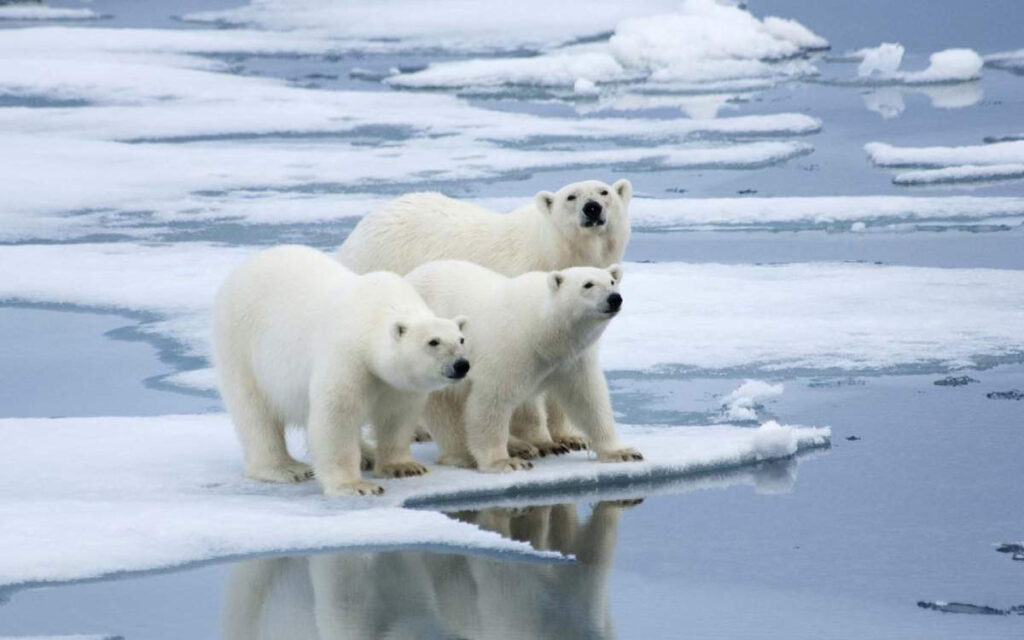
For the most part, there is also “low confidence” that a wider range of adverse climate impacts will occur beyond 2050, except under ‘worst case” scenarios. Photo Credit: Britannica.
Today, many television weather broadcasters have morphed into “climate analysts” as they call the latest heat wave, cold wave, wind storm or other event proof of dangerous climate change. Governments promote and piggyback on this storyline, portraying weather as climate and attributing climate changes to human causes as they seek support for taxes, regulations and subsidy programs. The issues are complex, and the average person can be forgiven for not knowing whom to believe.
Many people say, “Believe the science!” without acknowledging that the scientific issues being debated are enormously complex. The earth’s climate is a chaotic system, governed by dozens of natural and human-induced influences that interact with one another and are difficult to understand. Doing so requires one to know which climate and weather changes have occurred in the past, how to project them into the future and how to distinguish the results of natural variability from human influences. None of this is either simple or clear.
Every year, thousands of academic studies are published by scientists who examine the climate system. These include assessments of the effects of oceans, clouds, atmospheric and solar conditions and other influences on temperatures, droughts, floods, storms, and whatever else the public may be concerned about. The Intergovernmental Panel on Climate Change (IPCC) is an international organization that reviews the results of these studies and attempts to synthesize the state of current knowledge. In doing so, the IPCC categorizes the summary statements in terms of the levels of confidence that they attach to them. The confidence levels are based on the type, amount, quality and consistency of the evidence and the degree of agreement among the experts in the field. The confidence levels generally range from unlikely (0-33% probability) to likely (66 to 100% probability) to very likely (99-100% probability), although in many cases there is insufficient evidence to attach a probability.
The most recent report of the IPCC on climate science is the Sixth Assessment Report (AR6) published in 2021. That report examined thousands of issues, including the frequency of disasters and “extreme weather events” potentially related to climate change and the attribution of these to natural or human causes. The potential impacts examined included precipitation levels, floods, droughts, erosion of coastlines, frost, heat waves, ocean alkalinity, sea levels, cyclones and hurricanes, to name the most important. They assessed whether, based on present evidence, the impacts are already occurring and whether, based on their models and scenarios of the future, the impacts seem likely to occur sometime after 2050.
Here is the key conclusion: the IPCC stated that in the historical period (i.e. up to now) it has “high confidence” that increases are occurring in mean air temperatures, extreme heat periods, and ocean temperatures and that decreases are occurring in dissolved oxygen in the oceans and in ice levels in lakes, rivers and seas. It has “medium confidence” (i.e. 50-50 chance) that there have been increases in ocean salinity and decreases in cold spells and permafrost.
That’s it. The IPCC had “low confidence in the direction of change” of most of the climate impacts that receive most current media attention, including precipitation, drought, fire weather, cyclones and hurricanes, snow and ice, sea levels, coastal erosion and ocean acidity.
For the most part, there is also “low confidence” that a wider range of adverse climate impacts will occur beyond 2050, except under ‘worst case” scenarios.
The IPCC is only one source, although it is usually treated by the United Nations and others who promote radical greenhouse gas emissions reductions as the most credible source. Yet, the most recent IPCC report contradicts the media and governments who are predicting climate and weather catastrophes.
Don’t just believe me. Look it up.




















